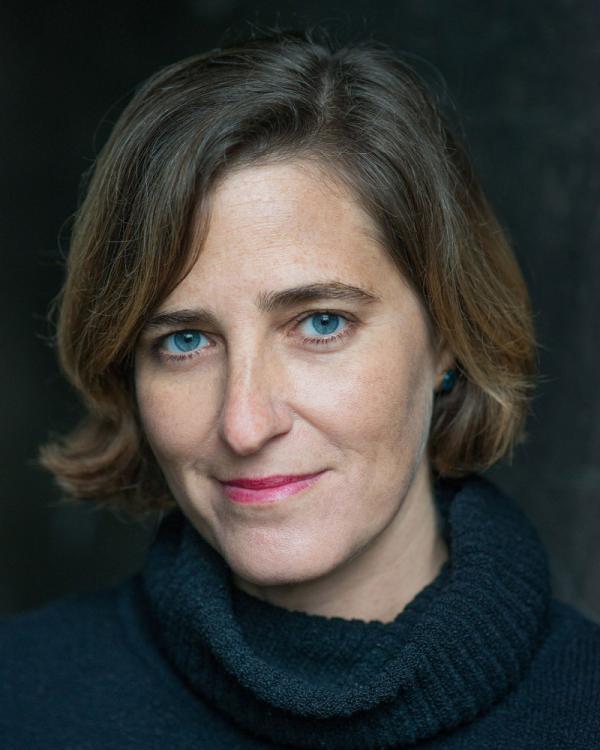Q&A with NEH Public Scholar Sarah Dry

Sarah Dry, recipient of an NEH Public Scholar award to write a history of our global understanding of climate and water.
David Myers

Sarah Dry, recipient of an NEH Public Scholar award to write a history of our global understanding of climate and water.
David Myers
Name: Sarah Dry | @SarahDry1
City and State: Brighton, United Kingdom
Book Title: The Circulation of Our World: Scientists and the Quest to Understand the Waters of the Globe
Publication date: 2017
Publisher: n/a
Agent: n/a
Amount of Public Scholar grant award: $50,400 (12 months)
- What is the book you are writing with NEH support about? My book tells a 150-year history of how scientists have studied the waters of the globe, the oceans, glaciers and atmospheric vapor that govern our planet's climate. It's a journey through time and space with a motley crew of physicists, oceanographers, meteorologists and glaciologists that ranges far and wide, from the Greenland ice sheet to a mountain top in Tenerife to a patch of swirling water in the middle of the Atlantic and beyond.
- Tell us the first thing you did when you learned you received an NEH Public Scholar grant. It was very early in the morning on a Saturday and was the last thing I was expecting. I ran downstairs to tell my husband, who was making coffee, and gave him a big kiss.
- What’s your writing or academic background? My PhD is in History of Science from Cambridge University, and I studied History and Literature as an undergraduate at Harvard. I’ve published a brief biography of Marie Curie and more recently a book on the history of Isaac Newton’s manuscripts. I’ve also been working on a historical novel about a Victorian physicist.
- How did you find your book project? I wrote my Ph.D. on science and safety in Victorian Britain and it included a lot of material on meteorology. That started an ongoing obsession with the history of the weather and climate. I really appreciate how Victorian scientists were able to work across boundaries, in the areas of what we might call physics, chemistry, geography, geology and botany, as well as how they moved between professional and more popular writing. It wasn’t always seamless, but that only makes it more interesting to watch them do it. My book on the history of the sciences of water is my way of trying this out and seeing what it feels like to bring a lot of disparate material together. I also seem to be consistently drawn to stories that feature a strong tension between centralizing impulses—be they government offices or theoretical notions—and things that remain independent or peripheral. The book on water is partly about how scientists develop a global perspective, where it comes from, and why we think of some things and not others as global phenomena.
- What sources are you using for your research? Since my book covers the period from roughly 1850 to today, it’s a real mix, from archival sources such as correspondence, notebooks and diaries, to published materials such as books and newspaper articles (many of which are now very conveniently available online) and, for the more recent history, interviews with relevant participants.
- Why do you want this project to have broad appeal? I think science is too important to leave to the scientists. Writing a compelling narrative about the history of science, and especially about how we have studied the Earth’s environment, is a great way to engage people with ideas that might otherwise seem too forbidding. Our current understanding of how the planet works is a product of all the history that has come before. Understanding the history of these sciences will help us to better understand the planet and our relationship to it.
- What is the biggest challenge of writing a scholarly book for a general audience? For me it’s always a struggle to get the right tone, to keep things light while conveying the important arguments that make the history worth doing. The most important thing is keeping an eye on narrative and story, and making sure the reader always wants to know what comes next.
- Do you have a model or a favorite popular scholarly book? Elizabeth Kolbert’s book on climate science Field Notes from a Catastrophe is a great example of the advantages of keeping things brief. But it’s not easy! Saying less is so much harder than it looks. I really enjoyed Sarah Bakewell’s biography of Montaigne, How to Live, for the way it embodied the playfulness of its subject while conveying a lot of information. I’d love to write a book like that.
- How has the Public Scholar grant award made a difference in your project? The grant money will make it possible for me to visit archives in Europe and the US which I might not otherwise have been able to, and helps support me on a daily basis. Even more importantly, getting the grant gave me a tremendous boost in confidence and drive. Writing is a lonely business and as an independent scholar, I sometimes feel isolated. The Public Scholar grant makes me feel that what I am doing is really worthwhile.
The NEH Public Scholar program for well-researched books in the humanities for a general audience is open for a third round of applications. Click here to learn more about this grant opportunity and here to download the .pdf with the Public Scholar application guidelines. The application deadline is February 1, 2017. Contact @email with questions.